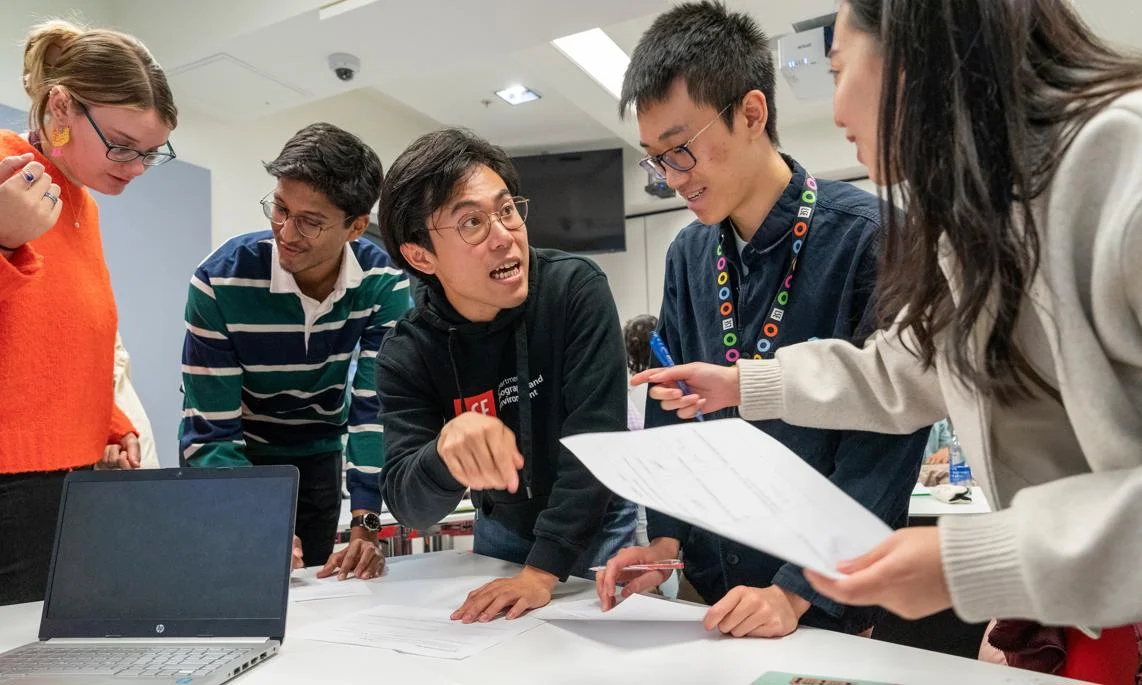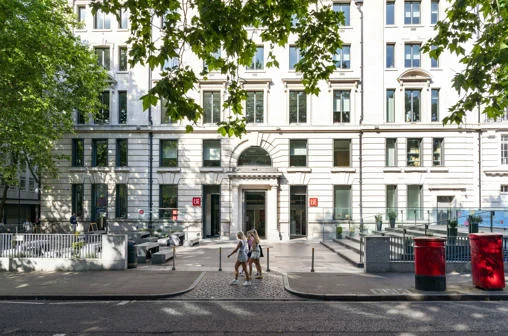Overview
Introduction
The MSc Urbanisation and Development reviews urbanism from colonial to contemporary periods, emphasising demographic, social, economic, cultural and political processes.
At a time when three-quarters of the world's urban population, and over 90 per cent of future urban population growth, will be in the developing world, it's vital we understand the relationships between urban and development issues from both theoretical and empirical standpoints. This programme pays particular attention to the origins and claims of development theory and practice, and the aims and achievements of contemporary urban policy from a wide variety of thematic and theoretical perspectives.
The programme attempts to provide a conceptual and empirical basis from which to understand urban problems and critically evaluate prescribed solutions. You'll develop an understanding of urban theory and development theory and how they apply to real world situations. You'll learn how policy intentions and outcomes can be evaluated from economic, social, political and cultural perspectives, from international to local scales, and in ways sensitive to concerns for gender, ethnicity, social justice and democratic deepening.
Preliminary readings
Recent and important publications by the Urban, Planning and Development cluster who lead the MSc programme:
- Antona, Laura (2023) "Cute face and quiet … but her look don't match her personality": commodifying flesh, shaping labour expectations and domestic workers' treatment in Singapore. Transactions of the Institute of British Geographers, 48(2): 425-38.
- Antona, Laura (2022) "Shelters and clinics: sites where care and violence are mutually constitutive for migrant workers in Singapore". Social and Cultural Geography, 24(10): 1790–807.
- Angelini, Alessandro and Gareth A. Jones (2025) "My neighbor, the gringo: convivência and outsider hospitality in a Rio de Janeiro favela", Cultural Anthropology, 40, 4, 726-52.
- Ikemura Amaral, Aiko; Mara Nogueira & Gareth A. Jones (2025) "Re-framing popular governance in Brazil: re-insurgent and entrepreneurial arrangements in the urban peripheries", Political Geography, 118.
- Mercer, Claire (2024) The suburban frontier: middle class construction in Dar es Salaam. University of California Press.
- Gillespie, Tom and Claire Mercer (2025) "New urban frontiers", Urban Geography, 46, 8, 1651-70.
- Menon, Siddarth (2025) "Sand, plantation urbanism, and the extended political ecology of infrastructures in India". International Journal of Urban and Regional Research, 49(6): 1281-1301.
- Menon, Siddarth (2025). "Dubai diasporas, transnational remittances, and intimate infrastructures of finance in India". Environment and Planning A: economy and space, 57(6): 719–38.
- Sanyal, Romola and Mara Ferreri (2024) "Conversions: the emerging informalisation of housing in the Global North". Planning Theory, 24 (3). 199 - 218.
- Sanyal, Romola (2025) "The space that refuge makes: rethinking displacements and protection". Refugee Survey Quarterly, 44 (3). 337 - 44.
- Shin, Hyun Bang (2025) "Urban state venturism or urbanization of state capital? Views from the global East". Dialogues in Human Geography, 15 (2). 286 - 90.
- Shin, Hyun Bang and Dong-Wan Gimm (eds.) (2025) The Political Economy of Megaprojects in Asia: state power, land control, financial flows, and dispossession. Routledge.
- Speer, Jessie (2017) “'It's not like your home': homeless encampments, housing projects, and the struggle over domestic space". Antipode, 49(2), 517-35.
- Speer, Jessie (2016) "The right to infrastructure: a struggle for sanitation in Fresno, California homeless encampments". Urban Geography, 37(7), 1049-69.
- Zeiderman, Austin and Kate Dawson (2022) "Urban futures: idealization, capitalization, securitization". City, 26(2–3), 261–80.
- Zeiderman, Austin (2025) Artery: racial ecologies on Colombia’s magdalena river. Duke University Press.
Entry requirements
Upper second class honours degree (2:1) or equivalent in a social science subject, such as geography, anthropology, sociology, planning or development. Alternately a degree in another field with work experience relevant to cities and/or development could be considered.
Please select your country from the dropdown list below to find out the entry requirements that apply to you.
Overseas
English language requirements
The English language requirement for this programme is Standard. Read more about our English language requirements.
Competition for places at LSE is strong. So, even if you meet the minimum entry requirements, this doesn't guarantee you an offer of a place.
However, please don’t feel deterred from applying – we want to hear from all suitably qualified students. Think carefully about how you can put together the strongest possible application to help you stand out.
Programme content
Year 1
You'll take courses to the value of four full units in total, made up of compulsory and optional courses.
You'll normally take one and a half unit's worth of options in Geography, and half a unit worth in International Development, although adjustments can be made. If you're planning to apply for a PhD within the department, you may wish to audit additional methods training during your MSc. Contact your MSc Programme Co-Directors and the Director of Graduate Studies to discuss this requirement.
Courses to the value of one unit from a range of options
Why study with us
Discover more about our department below and explore our student testimonials on our website.
Meet the department
Our department is highly regarded both nationally and internationally – ranked second for Geography in the QS World University Rankings 2025.
Here at LSE, we offer a unique opportunity to study geography in a university with a worldwide reputation in the social sciences. We specialise in economic, urban and development geography, environmental social science and climate change, all with a strong emphasis on real-world applications.
Many of our academics are internationally renowned in their fields. You’ll find a good balance of experienced and younger academics in the department. Within the team, we’ve had three holders of the highly prestigious Philip Leverhulme Prize Fellowships for researchers under the age of 36.
Our research is interdisciplinary and international in its scope and we work closely with academics from several other departments at LSE. Teaching staff are active within the following research centres:
- Cañada Blanch Centre for Contemporary Spanish Studies
- Centre for Climate Change Economics and Policy
- Centre for Economic Performance
- Grantham Research Institute on Climate Change and the Environment
- LSE London
- Middle East Centre
- Saw Swee Hock Southeast Asia Centre
- Transition Pathway Initiative Centre
- What Works Centre for Local Economic Growth
Based in the heart of London opposite Lincoln’s Inn Fields, the department offers a lively, welcoming and supportive community for students and staff.
Learn more about our undergraduate, postgraduate and PhD study opportunities, as well as our research.
Why LSE
University of the Year 2025 and 1st in the UK in 2025 and 2026
Times and The Sunday Times - Good University Guide 2025 and 20261st in London for the 14th year running
The Complete University Guide - University League Tables 20266th in the world for the study of social sciences and management
QS World University Rankings by Subject 20256th in the world for leading the way in social and environmental sustainability
QS World University Rankings: Sustainability 2026Your application
Overview
We welcome applications from all suitably qualified prospective students. At LSE, we want to recruit students with the best academic merit, potential and motivation, irrespective of background.
We carefully consider each application and take into account all the information included on your application form, such as your:
- academic achievement (including predicted and achieved grades)
- statement of academic purpose
- two academic references
- CV.
See further information on supporting documents.
You may need to provide evidence of your English language proficiency. See our English language requirements.
When to apply
Applications for this programme are considered on a rolling basis. This means that applications will close once the programme is full.
There is no fixed deadline. However, if you’d like to be considered for any funding opportunities, you must submit your application (and all supporting documents) by the funding deadline. See the fees and funding section below for more details.
Fees and funding
The table of fees shows the latest tuition fees for all programmes.
You're charged a fee for your programme. At LSE, your tuition fee covers registration and examination fees payable to the School, lectures, classes and individual supervision, lectures given at other colleges under intercollegiate arrangements and, under current arrangements, membership of the Students' Union. It doesn't cover living costs or travel or fieldwork.
Home
Home student fee (2026/27)
For this programme, the tuition fee is different for home and overseas students depending on their fee status.
Overseas
Overseas student fee (2026/27)
For this programme, the tuition fee is different for home and overseas students depending on their fee status.
Learning and assessment
How you learn
How you're assessed
All taught courses are required to include formative coursework which is unassessed. It's designed to help prepare you for summative assessment which counts towards the course mark and to the degree award. LSE MSc Urbanisation and Development courses use a range of formative exercises such as essays and student presentations. Summative assessment may be conducted during the course or by final examination at the end of, or after, the course.
For the core courses on MSc Urbanisation and Development, GY459 entails a summative assessment and unseen exam, whereas GY452 is assessed on the basis of two written summative assignments (essay and dissertation proposal) plus a seminar presentation on the student’s intended dissertation topic. Further details, and an indication of the formative coursework and summative assessment for each of the optional courses can be found in the relevant course guide.
Graduate destinations
Overview
Graduates enter a wide variety of employment including the public sector, non-governmental and civil society organisations, international agencies, research and consultancy, as well as further study.
Explore further testimonials on study experience and graduate destinations
Further information on graduate destinations for this programme
Median salary of our graduate taught students 15 months after graduating:
Top 5 sectors our students work in:
Career support
From CV workshops through to careers fairs, LSE offers lots of information and support to help you make that all-important step from education into work.
Many of the UK’s top employers give careers presentations at the School during the year and there are numerous workshops covering topics such as job hunting, managing interviews, writing a cover letter and using LinkedIn.
See LSE Careers for further details.

